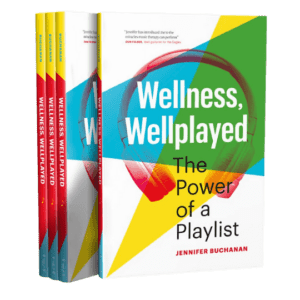

Our Perception of Stress
Recent research aimed to understand the effects of listening to relaxing music before undergoing a stress task. The study had participants engage in diverse conditions: some listened to soothing music, others to the sound of rippling water, and another group sat in silence.
Interestingly, participants who listened to music exhibited the highest cortisol (a stress hormone) concentrations after the stress task. On the other hand, the sound of rippling water had the most calming effect, resulting in the lowest cortisol levels. This seems to challenge the common belief that music inherently has a universally calming effect.
I find this result intriguing yet not entirely unexpected. From my observations, there exists a specific ‘positive stress window’ that music can help with – where individuals can simultaneously feel at peace and be energized, a balance between relaxation and productivity. I’ve repeatedly seen individuals and groups experience this nuanced state when music is thoughtfully integrated to align with their objectives.
It’s also worth highlighting that not all stress is detrimental. In fact, certain levels of stress can bolster cognitive and behavioral performance. Such stress can heighten our alertness and even stimulate the growth of new nerve cells, enhancing our mental responsiveness.”
This study illuminates the intricacies of our brain’s response to music, sound, and stress.
Why Should This Deeper Dive into Music, Sound and Stress Matter to Us?
- Redefining Relaxation Techniques: If you’ve ever reached for headphones after a challenging day, understanding how different sounds affect stress can help guide your choices for better outcomes. It’s essential to consider that while a state of complete calm might not always be optimal at work, it could be precisely what one requires at home or before sleep.
- Experiencing the Power of Nature: The results emphasize the therapeutic potential of natural sounds. As urbanization distances us from nature, recognizing our natural affinity towards it can encourage us to seek green spaces and incorporate nature sounds in urban settings.
- Personalizing Stress Management: Stress management isn’t universal. While music may be a remedy for some, others might resonate more with different auditory stimuli. It is also important to note that sometimes we don’t know what music puts us into our desired emotional window. A Certified Music Therapist can help with this.
- Calling for More Research: The intricate relationship between sound, music, and our stress responses is more important than ever. These findings underscore the marvel of human neurology, our nuanced reactions to music, and our profound interactions with our environment – including the sounds we consume.
As we navigate the complexities of modern life, understanding this symphony of stress becomes increasingly vital. The more we comprehend, the better we can manage our well-being.
Reference: Thoma MV, et al. (2013) The Effect of Music on the Human Stress Response. PLoS ONE 8(8): e70156.











